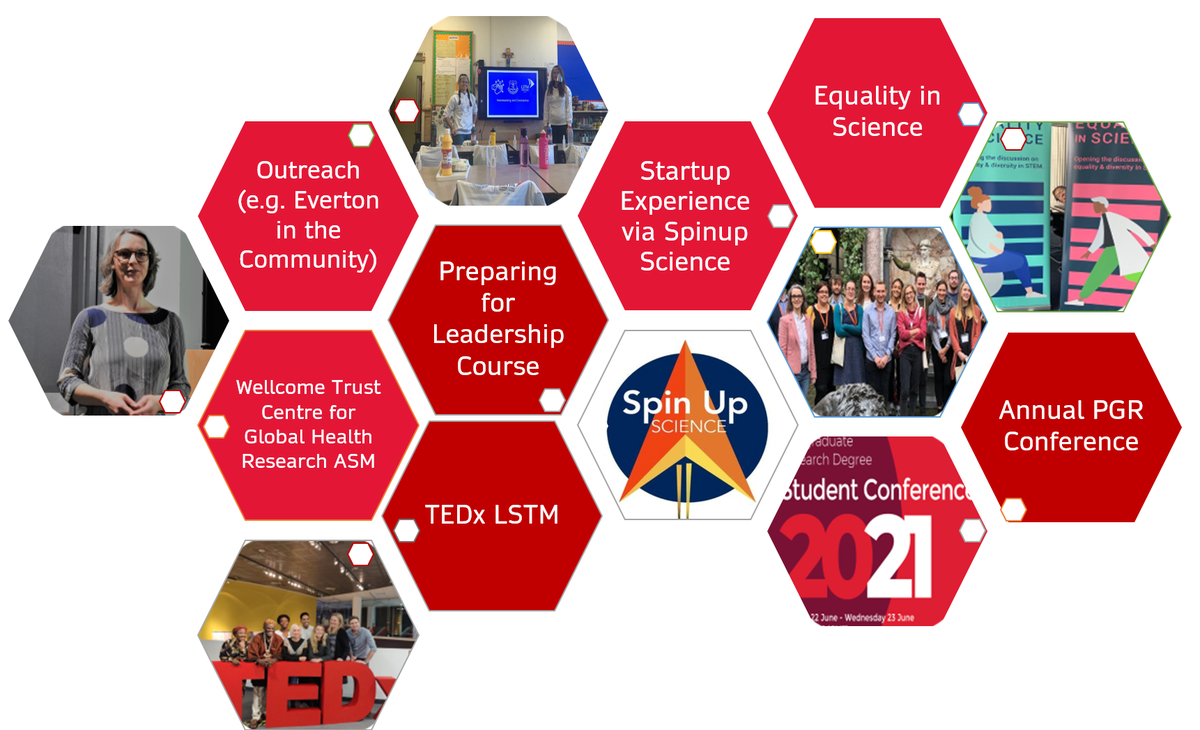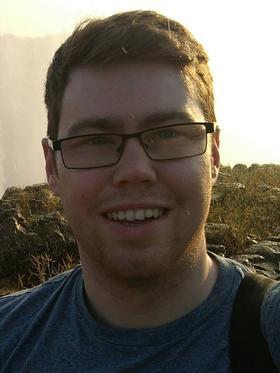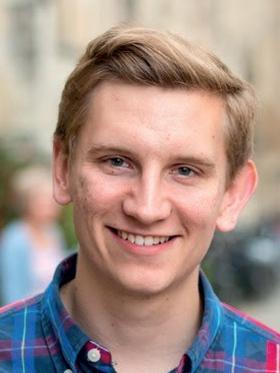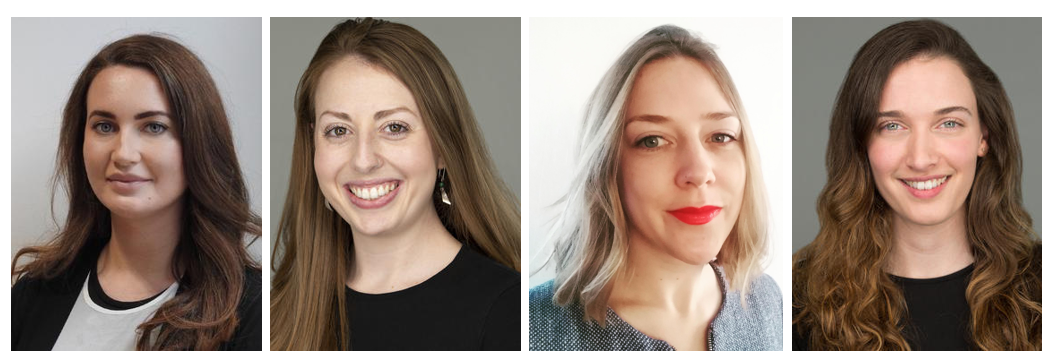
Training and development activities
A student-centred approach to development is integral to the philosophy of the DTP. Students are invited to identify and measure training needs at the earliest opportunity with the support of their supervisors, progress assessment panel and mentors using well-established and effective tools such as the Vitae Researcher Development Framework
After identifying areas for growth as researchers, students engage flexibly in development and training activities according to their priority needs across the course of their registration via a programme of embedded opportunities at LSTM and Lancaster University and beyond. Students are also strongly encouraged to proactively seek out external courses, placements and internships which closely align with their specific development needs, costs of which can be supported via the DTP Flexible Funding Supplement.
Examples of the sorts of activities that our students have engaged with during the programme, that have either been organised by the DTP, or led by students with the support of the DTP are highlighted below. You can also read more about how our students have used awards of flexible funding for internships, placements, high cost or exceptional training.

Student Opportunities Supported by Flexible Funding

Sean Tomlinson
Activity: Internship with Illumina
Category of Activity: Working with Industry/Interdisciplinary
What impact did this opportunity have on your development as a researcher?
The opportunity to undertake a placement at Illumina as a Bioinformatician/Data Analyst on a project involving identifying mutational signatures in a subset of breast cancer samples allowed me to build upon skills I had already dipped my toe in during my PhD. Importantly, it’s helped me to make informed decisions in planning to pursue academic and industry routes in next steps of my career.

Daniel McDermott
Activity: Attendance at ‘Science Policy: Improving the Uptake of Research into UK Policy’ course
Category of Activity: Working with Industry/Interdisciplinary
What impact did this opportunity have on your development as a researcher?
My area of research involves evaluating ongoing use of large-scale vector control interventions on the transmission of malaria, which carries implications for future action in this field. Given that intervention deployment is often guided by a top-down approach, exposure to opportunities whereby I could develop my abilities to communicate my research effectively to bodies such as senior governmental advisors, NGOs etc. was a priority for me. I gained valuable experience during this course working with policymakers, understanding where my expertise could be employed to the greatest effect, and how to synthesise my research into a format suitable for inclusion in a governmental white paper.
Gala Garrod
Activity: Internship in Laboratory Evaluation of Rapid Diagnostic Tests for the Detection of SARS CoV-2
Category of Activity: Exceptional Training Opportunities
What impact did this opportunity have on your development as a researcher?
This placement provided an opportunity to be involved in COVID-19 diagnostic test evaluation and gain an insight into the process by which a test is developed from a prototype to a widely used commercial tool. Furthermore, I gained understanding of global action aimed at disease control within a real-world pandemic and gained an insight int the differences between an elimination setting (which my PhD is based in) and a global emerging disease setting. This opportunity provided a skill set which I can build on long-term when pursuing a career in infectious disease control with a focus on diagnostics.
Cian Ryan
Activity: Internship with UK Health Security Agency
Category of Activity: Working with Industry/Interdisciplinary
What impact did this opportunity have on your development as a researcher?
I worked as a senior scientist with the contract tracing cell at the UK Health Security Agency, providing epidemiological support to the COVID-19 pandemic response. My particular area of operation was in providing data management and analysis support in relation to incidents and outbreaks of infectious diseases (mainly COVID-19). I gained real-world experience using data analysis and programming skills that I learned during the programme, and networked with data and research partners that I will work with during my PhD and possibly beyond.

Richard Goodman
Activity: Attendance at ‘Next Generation Sequencing’ Course at Wellcome Genome Campus, Cambridge
Category of Activity: High Cost Training
What impact did this opportunity have on your development as a researcher?
As Next-Generation Sequencing (NGS) is vastly becoming the tool of choice for microbiological research, particularly in antimicrobial resistance (AMR) where the focus of my PhD and future career aspirations lie, the chance to attend this course has massively strengthened my understanding and confidence in using this technology. The focus on both the practice and theory, from initial library prep to bioinformatics, has given me a wealth of knowledge to apply directly to my current projects and skills that I can take forward into future roles.

Rachel Byrne, Katerina Cheliotis, Remy Hoek Spaans, Sophie Owen
Activity: Participation in Young Entrepreneur Scheme 2020
Category of Activity: Working with Industry/Interdisciplinary
What impact did this opportunity have on your development as a researcher?
Participating in YES was a fantastic experience that provided an immersive development opportunity in commercialising research ideas. Attendance at workshops and presentation of our business pitch offered a chance to develop skills in project management, entrepreneurship and communication skills, network with industry partners and ultimately, provided exposure to a career route that hadn’t really been a consideration before.